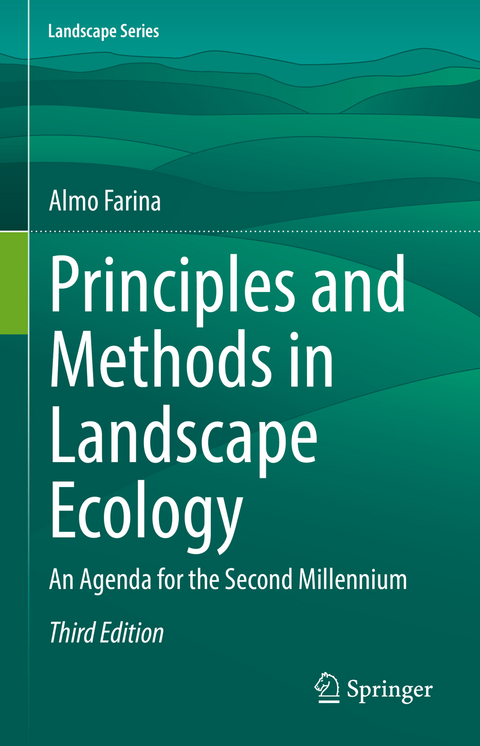
Principles and Methods in Landscape Ecology
Springer International Publishing (Verlag)
978-3-030-96610-2 (ISBN)
This third, thoroughly updated edition of a well received book, presents the most complete collection of theories, paradigms and methods utilized by the landscape sciences. With the introduction of new ecosemiotic concepts and innovative managing procedures, it offers a broad list of ecological, ecosemiotical and cultural tools to investigate, interpret and manage the environmental complexity according to a species-specific individual-based approach.
Readers will discover the importance of a landscape perspective to create strategic bridges between science and humanities favored by the holistic sight of sensorial (visual, acoustic, olfactory, tactile, and thermal) "scapes".
Distributed in 10 chapters, the content covers many aspects of the landscape sciences ranging from the description of fundamental theories, principles and models originated by ecological approaches like source-sink models, island biogeography, hierarchical theory and scale. The ecosemioticalapproaches like the eco-field model, the ecoscape paradigm, and the general theory of resources are widely described and discussed. A cultural approach to landscape is utilized to focus on the heritage values of territories and their environmental identity.
This book, written in an accessible and didactic style, is particularly dedicated to undergraduate and graduate students but also scholars in ecology, agroforestry, urban planning, nature design, conservation and remediation. Land practitioners, farmers and policymakers can use this book as an authoritative guide to better understand the function and role of environmental systems according to a social-economic integrated perspective.
lt;p> Almo Farina is honorary professor of ecology at the Department of Pure and Applied Sciences, Urbino University and president of the International Society of ecoacoustics.
His interest is to study the organization of landscapes and how organisms perceive the surrounding complexity. Recently AF has incorporated the principles of biosemiotic into the ecological domain developing the eco-field hypothesis and elaborated the General Theory of Resources. During the last ten years, he has worked on the fundaments of ecoacoustics. He published more than 290 reports, articles and books on zoology, eco-ethology, bird community ecology, landscape ecology, landscape changes, rural landscape modification, eco-semiotics, code biology, and ecoacoustics.
1.- Introduction to landscape ecology.- 2. Theories and models incorporated in the landscape ecology framework.- 3 Scaling patterns and processes across landscapes.- 4 Emerging processes in the landscape.- 5 Emerging patterns in the landscape.- 6 Principles of landscape dynamics.- 7 Principles for landscape conservation, management and design.- 8 Principles of soundscape ecology. - 9 Landscape economics and ecosystem services.- 10 Social dimension of the landscape.- 11 Sustainable landscapes.- 12 Climate changes across landscapes.- 13 Methods in landscape ecology. - 13.1 Introduction.- 13.2 Metrics in landscape ecology.- 13.3 The fractal geometry approach.- 13.4 Geographic Information Systems (GIS).- 13.5 Remote sensing in landscape ecology.- 13.6 Global Positioning Systems (GPS).- 13.7 Spatially Explicit Population Models (SEPM) to describe population patterns in a landscape.
| Erscheinungsdatum | 27.05.2022 |
|---|---|
| Reihe/Serie | Landscape Series |
| Zusatzinfo | XIV, 446 p. 1 illus. |
| Verlagsort | Cham |
| Sprache | englisch |
| Maße | 155 x 235 mm |
| Gewicht | 846 g |
| Themenwelt | Naturwissenschaften ► Biologie ► Ökologie / Naturschutz |
| Schlagworte | Complexity theory • ecological theories • Ecology • ecosystem • landscape ecology • Landscape management and conservation • landscape metrics • Perceived and cognitive landscape • Soundscape ecology |
| ISBN-10 | 3-030-96610-0 / 3030966100 |
| ISBN-13 | 978-3-030-96610-2 / 9783030966102 |
| Zustand | Neuware |
| Haben Sie eine Frage zum Produkt? |
aus dem Bereich


